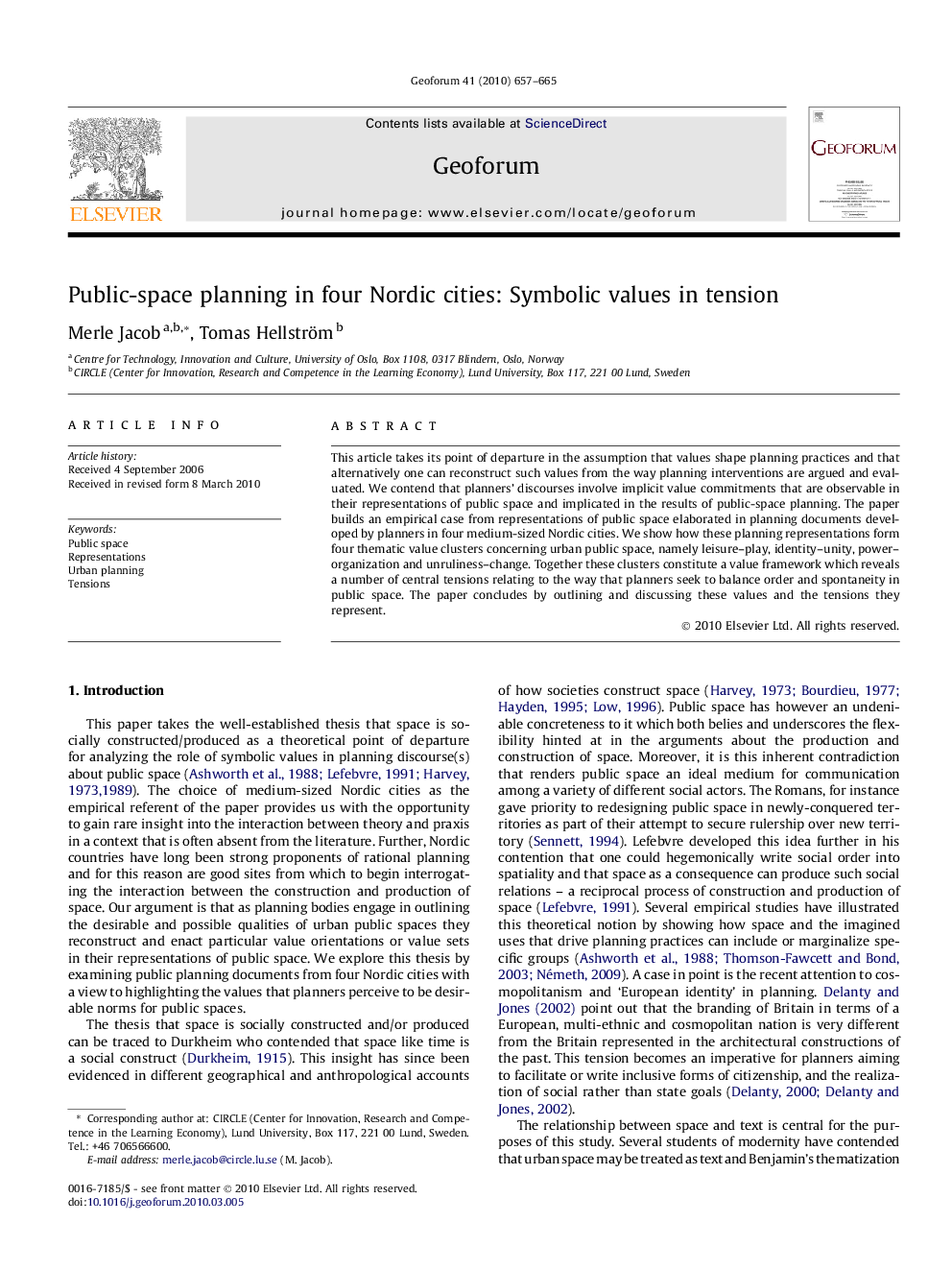| Article ID | Journal | Published Year | Pages | File Type |
|---|---|---|---|---|
| 5074584 | Geoforum | 2010 | 9 Pages |
Abstract
This article takes its point of departure in the assumption that values shape planning practices and that alternatively one can reconstruct such values from the way planning interventions are argued and evaluated. We contend that planners' discourses involve implicit value commitments that are observable in their representations of public space and implicated in the results of public-space planning. The paper builds an empirical case from representations of public space elaborated in planning documents developed by planners in four medium-sized Nordic cities. We show how these planning representations form four thematic value clusters concerning urban public space, namely leisure-play, identity-unity, power-organization and unruliness-change. Together these clusters constitute a value framework which reveals a number of central tensions relating to the way that planners seek to balance order and spontaneity in public space. The paper concludes by outlining and discussing these values and the tensions they represent.
Related Topics
Social Sciences and Humanities
Economics, Econometrics and Finance
Economics and Econometrics
Authors
Merle Jacob, Tomas Hellström,
